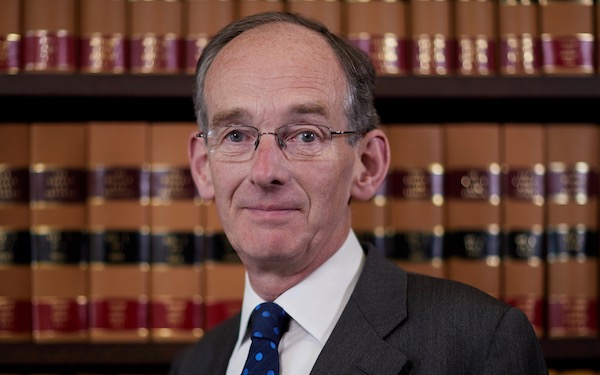
Story updated 23 June 2022
The leading family judge has launched a National DoLs (deprivation of liberty) Court to handle applications to deprive children of their liberty, which have risen rapidly in recent years.
Sir Andrew McFarlane, president of the family division of the High Court, said the court would start work on 4 July, handling all new family court applications for orders authorise the deprivation of a child’s liberty.
The number of such applications – which rely on the High Court using its inherent jurisdiction to act where there is no statutory provision – rose from 108 in 2017-18* to 579 in 2020-21, a 462% hike, revealed research published earlier this year by the Nuffield Family Justice Observatory (NFJO).
These involve children with very complex needs or at significant risk, who are ineligible to be detained under the Mental Health Act 1983 and either do not meet the criteria for a secure accommodation order under the Children Act 1989 or cannot be placed in a secure children’s home because of severe placement shortages.
In launching the court, Sir Andrew said its rationale was to develop specific expertise in dealing with deprivation of liberty cases.
Get up to speed on deprivation of liberty
 Community Care Inform Children has a wealth of guidance in relation to the deprivation of liberty of children and young people, including:
Community Care Inform Children has a wealth of guidance in relation to the deprivation of liberty of children and young people, including:
- A guide to deprivation of liberty involving children and young people by social care law trainers Steve Richards and Dawn Revell.
- Analysis of key case law, including the Supreme Court’s judgment in Re T (A Child) [2021], by Inform’s legal editors.
This, and other resources, are available to Inform subscribers. Find out more about how you can subscribe.
“This is important, sensitive work and the continued growth in the number of these applications to the family courts requires the creation of a dedicated listing protocol. The national DoLs court will provide the necessary expertise in dealing with these matters.”
Subject to judicial discretion, cases in the National DoLs Court will be held remotely, with two family High Court or deputy High Court judges allocated to the court each week, supported by a dedicated administrative team. Cases will either be retained for hearing within the National DoLs Court or reallocated to circuit judges, based on agreed criteria.
‘Profound unease’
In a lecture in 2019, McFarlane said he had “a profound unease over the court frequently being asked to approve the accommodation of children when it, the court, has no means of checking or auditing the suitability of the facility that is to be used” – because placements were typically unregistered.
Later that year, he issued practice guidance saying the court would need to be assured that providers were taking steps to secure registration for the placement and that, if a registration application had not yet been submitted, the court order authorising the placement should require that an application be submitted to Ofsted or the Care Inspectorate Wales within seven days.
Two years later, in the Re T case, the Supreme Court ruled that the inherent jurisdiction could be used in certain cases of “urgent necessity” to authorise the deprivation of liberty of a child in an unregistered setting, where there were no alternatives to protect the child.
In its review of the evidence on the issue published earlier this year, the NJFO said there was a lack of data concerning the deprivation of liberty of children under the inherent jurisdiction, as opposed to those detained through secure accommodation orders, the Mental Health Act or the youth justice system.
‘Lack of data a serious issue’
Alongside the creation of the national court, the NJFO has been appointed to collect and publish data on its work.
Its director, Lisa Harker, said: “The lack of information on DoLs cases – especially about children deprived of their liberty in unregistered placements – is a serious issue, which we have started to address through our research. The new court is an important first step towards improved transparency on this issue. However, we also need to understand more about why cases are rising in the first place, and about what can be done to better meet the needs of the vulnerable children involved.”
* The story originally said the baseline for the 462% increase was 2018-19, not 2017-18. We apologise for the error.



 Family help: one local authority’s experience of the model
Family help: one local authority’s experience of the model  ‘I spent the first three months listening’: how supportive leadership can transform children’s services
‘I spent the first three months listening’: how supportive leadership can transform children’s services  How senior leaders in one authority maintain a culture of excellence
How senior leaders in one authority maintain a culture of excellence  How staff support ensures fantastic outcomes for children and families
How staff support ensures fantastic outcomes for children and families  Workforce Insights – showcasing a selection of the sector’s top recruiters
Workforce Insights – showcasing a selection of the sector’s top recruiters 

 Facebook
Facebook X
X LinkedIn
LinkedIn Instagram
Instagram
We’ll hopefully they won’t call it a DoLs court as surely that’s muddling the children act and mental capacity act.
Perhaps it should be called a “DOL” court as this describes the function – making decisions about children deprived of their liberty – but doe not include the “s” that DOLs has.